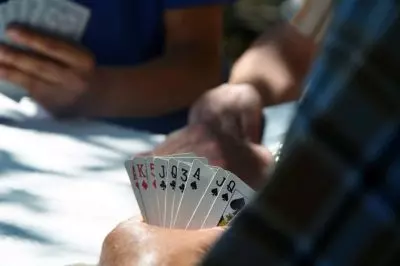 In the past few years, the Philippines has turned into one of the major global online gaming hubs. According to local officials, the country has attracted over 100,000 Chinese nationals who are employed in live virtual casinos most of which are aimed at attracting Chinese gamblers.
In the past few years, the Philippines has turned into one of the major global online gaming hubs. According to local officials, the country has attracted over 100,000 Chinese nationals who are employed in live virtual casinos most of which are aimed at attracting Chinese gamblers.
So-called Philippine Offshore Gaming Operators, also known as POGOs, have been both loved and hated. On one hand, such online gambling operations generate tax revenue and create jobs in the downtown area of Manila. The operations, however, have posed new challenges for the country’s police, not to mention they have pushed up rents in the area.
The ambivalent relationship between the Philippines and POGOs has seen campaigners insist on full shutdown on the gaming segment, with the industry’s chances to survive getting weaker. Over the past year, Chinese officials have been increasing the pressure on the Philippine Government to fully ban such operations across the country. Last August, Manila authorities stopped taking new license applications to operate POGO services following concerns regarding national security.
However, in September 2019, Philippine President Rodrigo Duterte said that he had no intention of banning the industry. According to him, the country needed those operations. After two months of closure because of the coronavirus pandemic outbreak, in May 2020, President Duterte allowed POGOs to reopen, recognizing them as important businesses for the country’s economy.
Number of POGO-Related Kidnappings Rises over the Past Three Years
 The increased criticism on the sector, however, considerably lower its chances to survive and the reports of kidnappings associated with POGOs continue to appear. In fact, the latest abduction incident happened a week ago, following another kidnapping earlier in June.
The increased criticism on the sector, however, considerably lower its chances to survive and the reports of kidnappings associated with POGOs continue to appear. In fact, the latest abduction incident happened a week ago, following another kidnapping earlier in June.
According to Philippine officials, the increase in POGOs’ popularity has resulted in a rise in criminal activities in the country. As explained by the Philippine National Police-Anti Kidnapping Group’s spokesman Elmer Cereno, Chinese nationals who are employed in POGOs often gamble at the casinos and fall into debt. Then, they are often approached by loan sharks who offer them money but many of them fail to pay back the money, which ends up with them becoming subject to kidnappings by the lenders trying to get ransom from their families.
In the period from January 2017 and October 2019, Philippine police officers have been engaged with a rising number of cases of abduction for ransom involving Chinese POGO employees or casino customers. Their work on these cases led to the arrests of 132 individuals. A constant increase in the number of casino- and debt-related kidnappings was registered in the past three years. While in 2017 and 2018 there were 17 and 16 cases of abductions reported to the police, that number rose to 38 in 2019. Analysts say that there may be a certain decline in these cases over the first quarter of 2020 due to the coronavirus outbreak, but once the restrictions are lifted, more people are likely to start looking for work at POGOs, which could make more individuals vulnerable.
According to reports, in October 2019, the families of two Chinese POGO employees were required to pay ransoms of between 68,000 yuan and 80,000 yuan in return to their releases. The two individuals were kidnapped from a hotel six days earlier and were held captives in an office building situated in a Manila suburb.